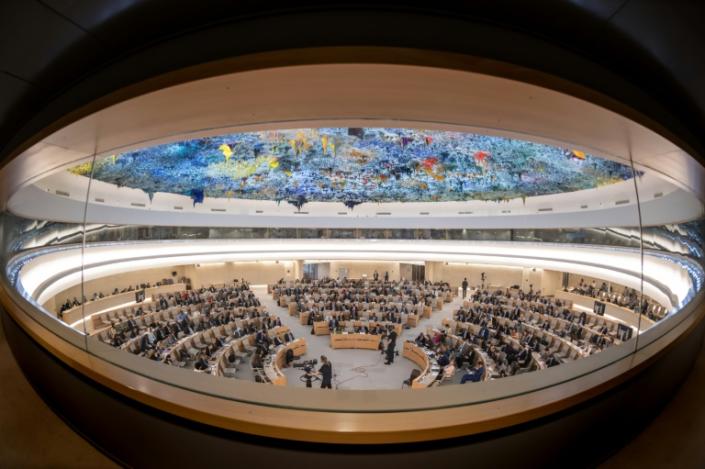
The UN Human Rights Council voted on Wednesday to condemn recent Quran burning incidents, but many countries refused to back the measure, fearing it would encroach too much on freedom of expression. .
Despite overwhelming condemnation of the desecration of the Muslim holy book, the vote brought more division than unity, as Western nations said more negotiations could have resulted in a unanimous consensus.
Pakistan and other Organization of Islamic Cooperation (OIC) countries have introduced a resolution after an Iraqi refugee burned pages of the Koran outside Stockholm’s main mosque last month, sparking a diplomatic backlash in the Muslim world.
The UN’s top human rights body backed the resolution with 28 votes in favour, 12 against and 7 abstentions.
Despite the vote to applause, there was little joy in the hemicycle in Geneva.
US Ambassador Michele Taylor said that with more time and open discussion, a consensus could have been reached.
“Unfortunately, our concerns were not taken seriously,” she said.
“I am truly sorry that this council was unable to speak with a unanimous voice today to condemn what we all recognize as deplorable acts of anti-Muslim hatred while respecting freedom of expression. “
– Claim of lack of courage –
There was little sense of triumph in Pakistani Ambassador Khalil Hashmi’s speech after the vote.
Speaking on behalf of the OIC, Hashmi said the resolution did not seek to restrict freedom of expression, but rather sought to strike a careful balance.
“Unfortunately, some states have chosen to abdicate their responsibility to prevent and counter the scourge of religious hatred,” he said.
“A message has been sent to billions of people of faith around the world that their commitment to preventing religious hatred is just talk.
“The opposition of some in the room emanated from their reluctance to condemn the public desecration of the Holy Quran.
“They lack political, legal and moral courage.”
The wording of the resolution condemns all manifestations of religious hatred, including “public and premeditated acts of desecration of the Holy Quran,” and stresses the need to hold those responsible to account.
It urges states to enact laws to “suppress, prevent and prosecute acts and advocacy of religious hatred that constitute incitement to discrimination, hostility or violence.”
He also wants UN human rights chief Volker Turk to identify gaps in countries’ laws in light of the resolution.
Britain, the United States, European Union countries including France and Germany, Costa Rica and Montenegro voted against the resolution.
Benin, Chile, Mexico and Nepal were among the abstentions.
Argentina, China, Cuba, India, South Africa, Ukraine and Vietnam supported the resolution.
rjm/apo/yad

